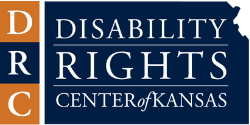Parents' and students' rights to Special Education during COVID-19
What are my child’s special education rights during COVID-19?
Is your school is providing any education (even virtually)? Then students with IEPs (also called Individualized Education Programs) must receive their IEP services. If the school is not providing any education at all (not even virtual), then they do not have to provide the services listed in an IEP.
Schools won’t be able to provide all IEP services in the same way that they did before. They should do everything that they can to meet the IEP’s services. However, services may look different during this time.
What does the law say?
COVID-19 has not changed any special education laws. Your child with a disability has the same legal protections that they had before. However, there are not specific rules on how your child will receive services during COVID-19. The U.S. Department of Education offered some ideas and options to school districts to cope with COVID. Schools can use these ideas and come up with their own. Some ideas are:
- Hard copy packets of materials
- Virtual and online materials
- Teacher “check-ins” with students through phone calls, video conferences, or other online methods
- Pre-recording class meetings and sharing them with students
- Live class meetings using video conferencing or other methods
How can I advocate for my child during COVID-19?
The first step is to know your rights. Request a copy of your rights as a parent of a child with an IEP from your school. Review them. Request a copy of your child’s IEP and BIP (also called a Behavior Intervention Plan, if they have one). This can help you to know if your child is still getting their services.
If your child has a BIP, it should already have a home component. If it doesn’t, request to meet with the school and add a home component. You can do this through phone or video.
If your child is learning at home with services from the school for longer than ten days, this counts as a change of placement. This requires an IEP meeting. You might need to request this meeting. Do this in writing through email or a letter.
You can advocate by planning early for the new school year. Request an IEP meeting in writing before school begins. The law does not require IEP meetings to be in person. Phone and video meetings work.
What if my child’s teacher gets sick?
Your child’s teacher could get sick and not be able to provide your child the support that you agreed to in the IEP. Keep a log of the days and times that this happens and a substitute is not provided to give your child services. You can use this later to ask for “compensatory” education.
What is compensatory education?
These are educational services that are given to children with IEPs to make up for lost time or skills during a time that services were not provided. Your child’s IEP team will decide what your child is owed. You are part of the IEP team. You have the right to ask for compensatory education, even if the school does not bring it up.
Sources & links:
“School Closures, COVID-19 and Students with Disabilities” Conference Call. National Disability Rights Center (2020).
Fact Sheet: Addressing the Risk of COVID-19 in Schools While Protecting the Civil Rights of Students. United States Department of Education Office for Civil Rights (2020).
Supplemental Fact Sheet: Addressing the Risk of COVID-19 in Preschool, Elementary and Secondary Schools While Serving Children with Disabilities. United States Department of Education Office for Civil Rights, Office of Special Education and Rehabilitation Services (2020).
Additional resources:
Coronavirus (COVID-19). Families Together, Inc. (2020).
COVID-19 and Education of Students with Disabilities Resources. National Disability Rights Network (020).
Disclaimer: This fact sheet is not intended to provide specific legal advice. Please contact an attorney for advice or assistance based on your particular situation. We try to update our materials regularly, but the law can change frequently. This publication is based on the law at the time that it was written. Future changes in the law could make information in this fact sheet inaccurate. Publication date: 9/17/2020
.png)






